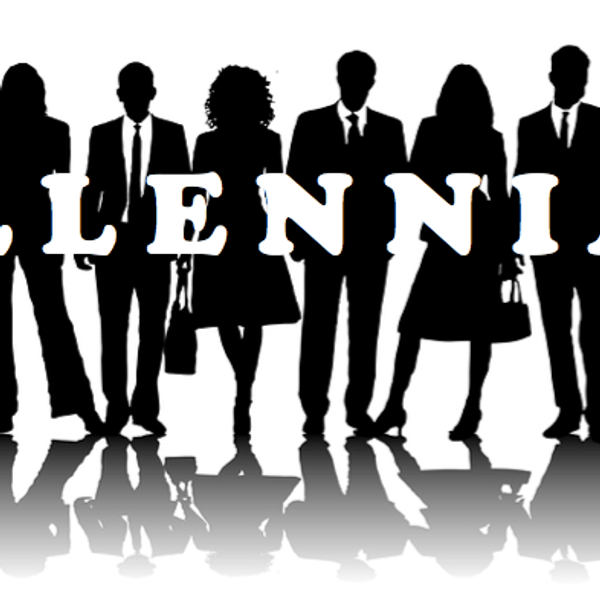Dear Millennials,
We are a generation that is often frowned upon. We have enormous buying power and as a result, are the targets of just about every marketing campaign there is. For that, we are called spoiled. We're seen as a generation dependent on technology, void of human interaction. And who knows, maybe that's true.
What’s often overlooked is the fact that, as a whole, we are a compassionate generation. We appreciate diversity, accept those who defy “traditional” rules of society, and try our best not to allow the negative actions of a small group of people affect our understanding of the larger population. Of course, there are always exceptions to the rule. Perhaps I choose to surround myself with understanding, caring people and consequently have a jaded perspective on the matter. Nonetheless, while many Millennials may have grown up with Baby Boomer parents who were opinionated and politically active in one way or another, they’ve still formed their own opinions based on their respective experiences.
What is upsetting is that despite having our own opinions, we—the caring and compassionate generation—fail to use the huge voice that we have as Millennials. Sure, the Baby Boomers tend to be louder in comparison to the smaller Generation X, but now there's us. Did you know that we have another name? We're the "Echo Boomers," "America's next great generation." And yet, we've been so overshadowed by the voices of our parents that we've forgotten our own.
More and more, I'll talk to people about their political ideologies—because I'm genuinely curious—only to find that they haven't registered to vote or that they don't know or care where they stand. This is a disturbing fact to me, because the fate of this country and its citizens is in our hands. We live here, too.
Unfortunately, the two dominant political parties are more polarized today than they’ve ever been. Yes, those with extremely liberal or conservative views are in the minority, and most Americans continue to express at least some mix of liberal and conservative beliefs. However, those of us in the middle have less of an influence on the political process. Why? Because those with polarized views are more likely to vote regularly and are far more likely to donate to political campaigns and contact elected officials. As a result, those running in elections tend to have more extremist opinions than that of the majority of America.
What does this have to do with Millennials?
As a whole, we are more moderate in our views than, say, our parents. For instance, 51% of "Republican" Millennials take a mix of liberal and conservative positions, whereas amongst the two oldest generations—Silents and Boomers—about 66% are consistently conservative.
Younger Republicans, unsurprisingly, tend to have less conservative views than their older counterparts when it comes to issues related to the environment, the role of government, homosexuality, and immigration. Similarly, Millennial Democrats are 21% more likely to say that homosexuality should be accepted by society than Silent Generation (Generation X) Democrats. They also are more positive toward immigrants.
Moreover, young Republicans are beginning to lean left on social issues, and Democrats are beginning to lean right on fiscal issues.
Why, then, are statistics telling us that the beliefs of Republicans and Democrats as a whole are growing farther and farther apart, when the beliefs of our generation are coming closer and closer together?
My guess is that we've become so fed up with the lying politicians, the extremists, the judgers, and the "get ahead in the polls" tactics that we've just given up altogether. What's been the consequence of our decision to accept defeat? The extremes have taken over.
The GOP is fed up with Obama’s alleged “hands-off” approach to foreign policy, especially with the recent terrorist attacks. As a result, their first pick for a presidential candidate is Donald Trump, a man who wants to “build a wall” so that Mexican immigrants cannot come into the country, and who wants to bar Muslims from entering the country.
Did you know that when he came up with this grand idea, he surged in the polls? He now has 35 percent of the GOP’s support, in comparison to Senator Ted Cruz’s—the closest contender—16%. I’m sorry, but is this really the man we want running our country? Bear in mind that this is the same man who is so intent on defying political correctness and gaining any publicity at all that he’s taken to belittling women, the disabled, and even the other Republican candidates.
On the other hand, before Hillary Clinton solidified her position as the Democratic Party’s frontrunner, the Democrats strongly considered Bernie Sanders, whose fiscal policies are more or less fantasies ($15 per her minimum wage… really? How’s that going to work for small businesses?). Furthermore, while he hits on trying to eliminate the gridlocking that occurs in Washington, realistically, important decisions are going to take time.
The result of these two selections is dissatisfaction on our end of things. As the older generation feeds on the entertainment factor of the debates and the extreme opinions of their respective selections, we grow more and more exasperated by politicking. We become withdrawn, rather than engaged. What we need to realize is that withdrawal is not the proper course of action. Withdrawal will bring about nothing other than a country being run by people who are not representative of what we stand for.
We stand for rights for all, we stand for progression, but we are also practical. As representatives of “middle” America, we need to vote, we need to petition, and we need to get involved. If not, our children might grow up in “Donald Trump’s world” (because isn’t he really just on a power kick)? If you haven’t registered to vote, and you haven’t thought about how you feel about the potential presidential candidates, you should.





















